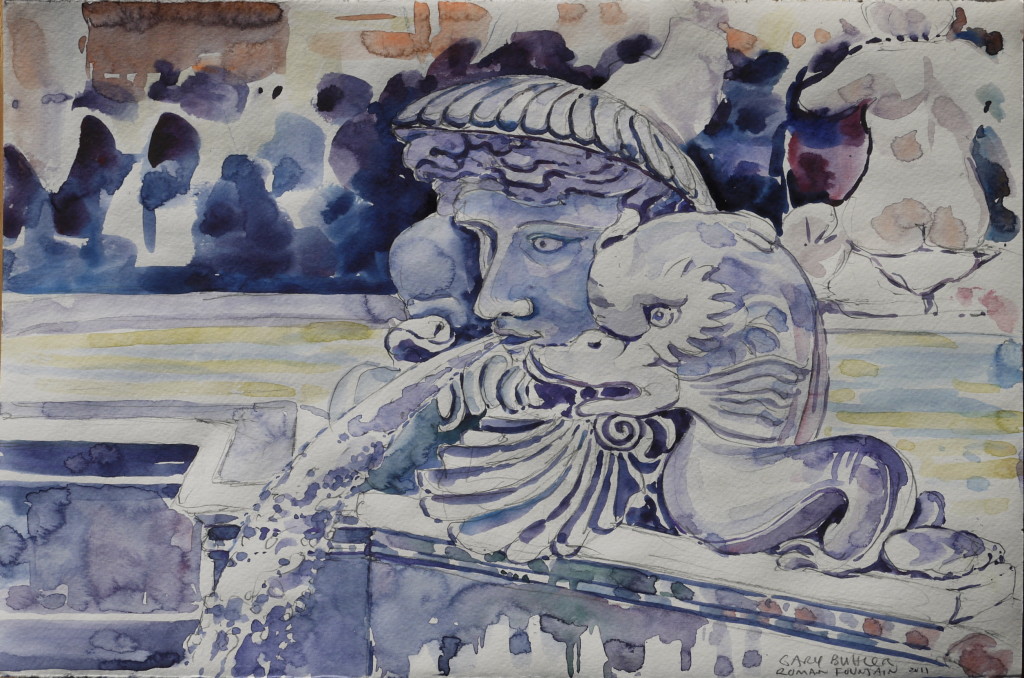 Fonte Roma, 12X18, watercolor, Gary Buhler
Fonte Roma, 12X18, watercolor, Gary Buhler
The Mandrake Delusions
He strutted through our cortices like a boxing, rocking tomb-
god with a black jackal for a head
He was the god of the dead. Keeper of secrets, of scrolls
on papyrus, made him despise us.
“Show us what it means, Anubis. We’re ready. The end / now.”
And like a textbook case for synchronicity,
symbols rolled through our minds. At exactly the same time.
Not jargon. But Ω, again Ω,
not om, but ohm, or better yet omega. A Greek kind of end.
And as we faded from dream to dream,
pink beads, glittered in a plastic cup, near our feet.
Deprived of string. And string, to them, was everything.
___________
Tess Joyce
Review by Ed Wickliffe
The Mandrake Delusions requires a little decoding. I say this in the most gracious way, as decoding a poem of allusion and classical symbol like this can be as rewarding as any poem of modern imagery.
There is probably more than one way to decipher The Mandrake Delusions. The key for me is the title. Mandrake is a plant, the root of which is said to contain narcotic, fertility, and aphrodisiac properties. So the poem will speak to us about love disillusioned, or, less likely, perhaps a disappointment due to childlessness. Because of its classical Greek and Egyptian motif, the poem might speak also about a shattering of ideals, the loss of innocence, the repetition of tragedy.
Furthermore, death (of some sort) figures prominently in the poem. Anubis is the Egyptian jackal-dog of death. Omega, last letter of the Greek alphabet, is a classic symbol for The End. The ingredients are here for the end of Love or Love’s Hope, or at least for a resignation to the serial disappointments of life. And the poem delivers on that theme.
It is interesting that such classical symbolism employs everyday speech and modern objects. The jackal is “boxing” its way toward us like a prizefighter. Pearls from a broken strand, each one a “dream” representing life’s loves, hopes, or ideals, are found in a plastic (not alabaster) cup. One gets the sense that these pearls will be weighed and judged in their afterlife—ritually, like the heart against the feather in ancient Egyptian beliefs. There is an odd, almost narcotic, feel to the mix of classic and modern here, appropriately fitting to the mandrake concept.
If The Mandrake Delusions is truly a tale of heartbreaks, it is devoid of the usual whining and self-pity found in most heartbreak tales. The Mandrake Delusions is a mature and sophisticated poem from a writer with a well-developed sense of symbol.
